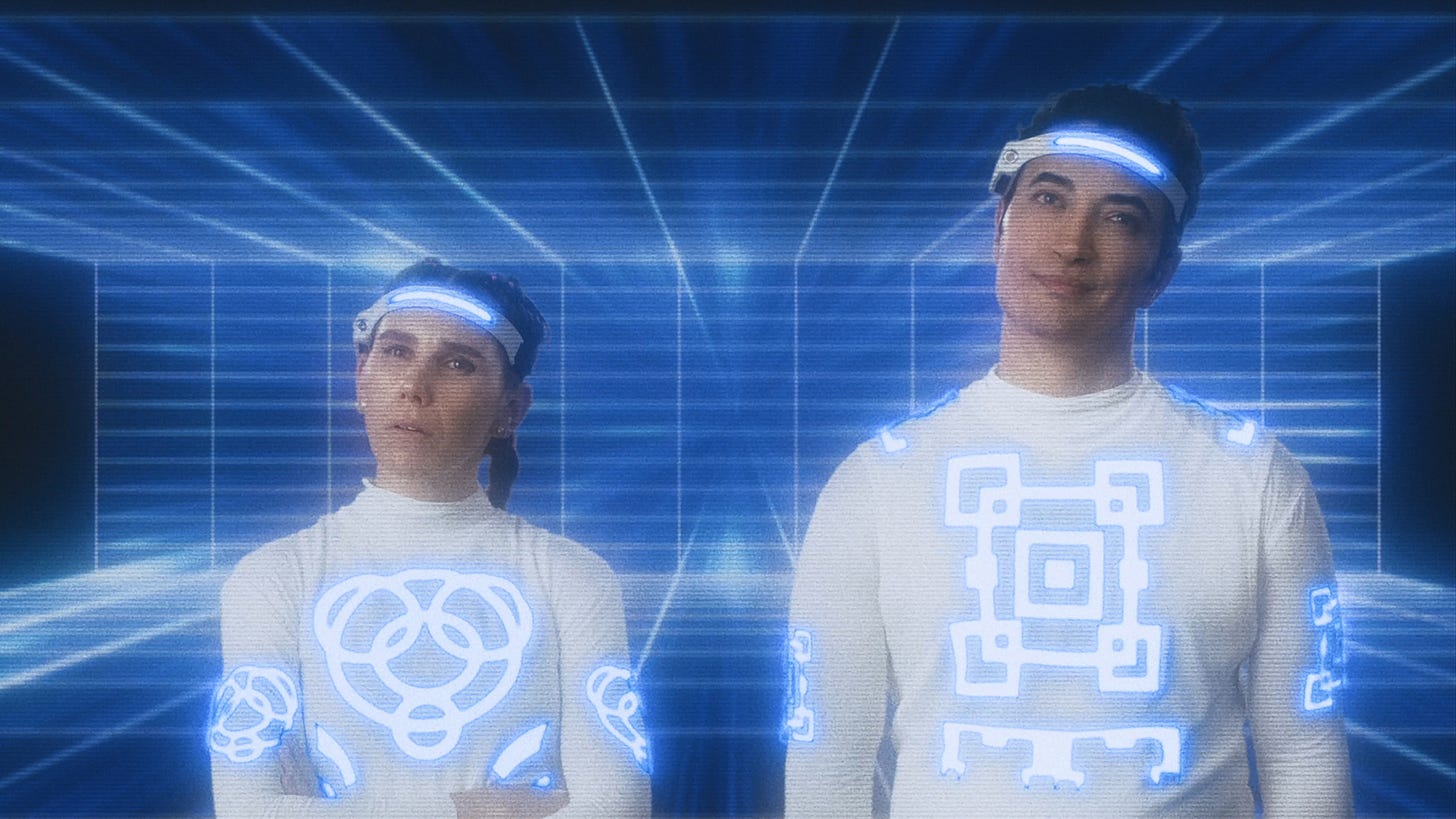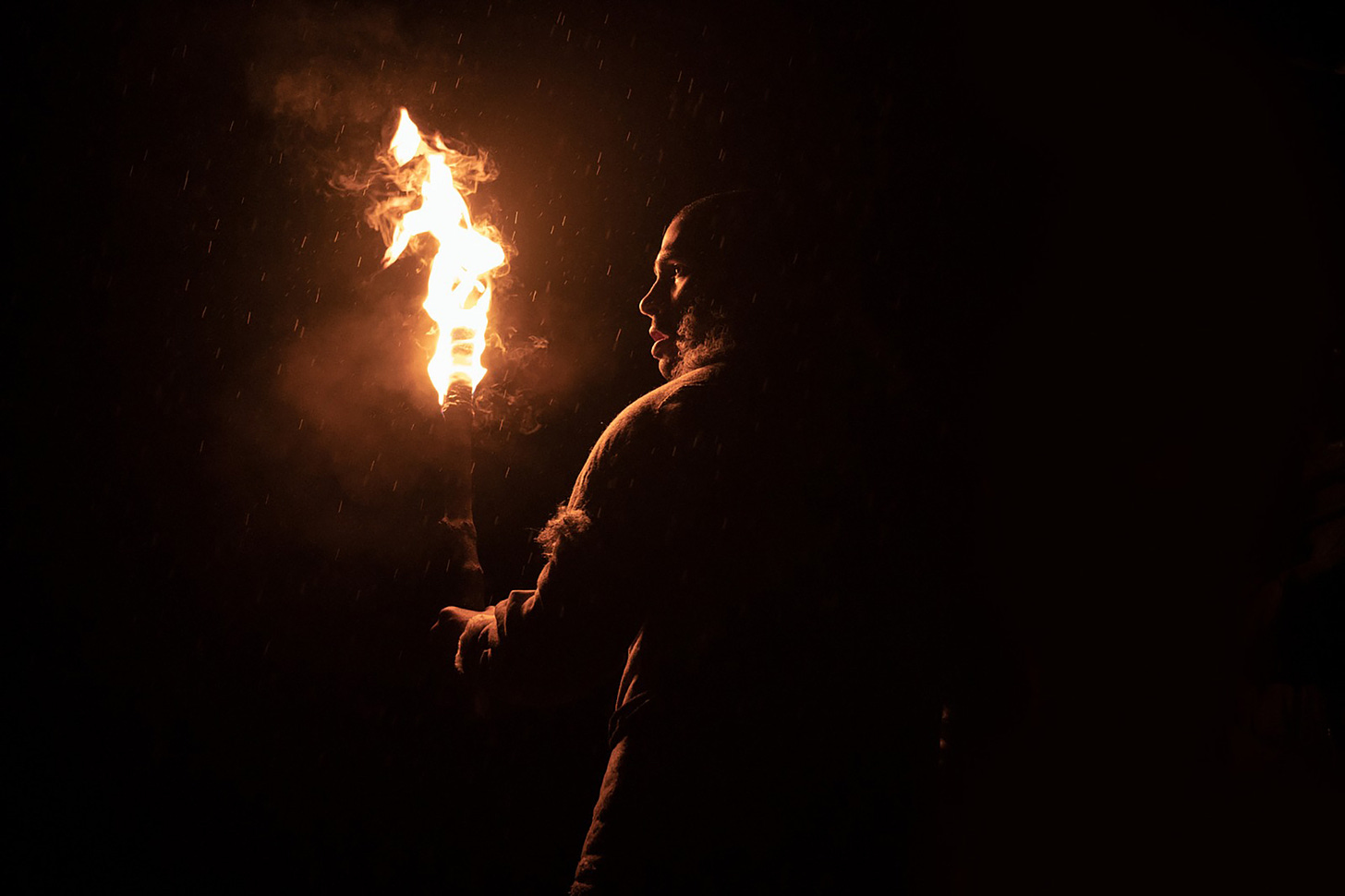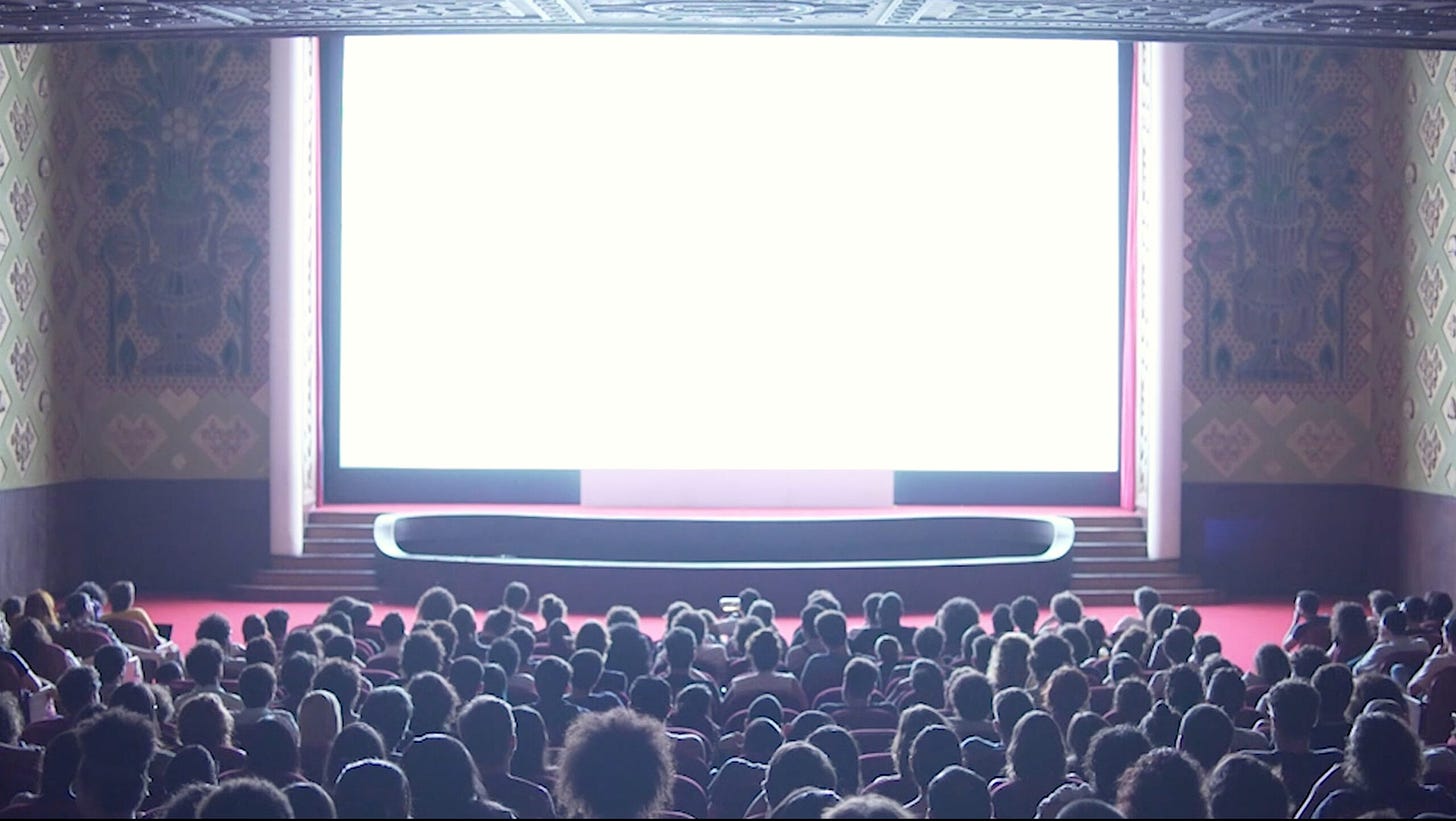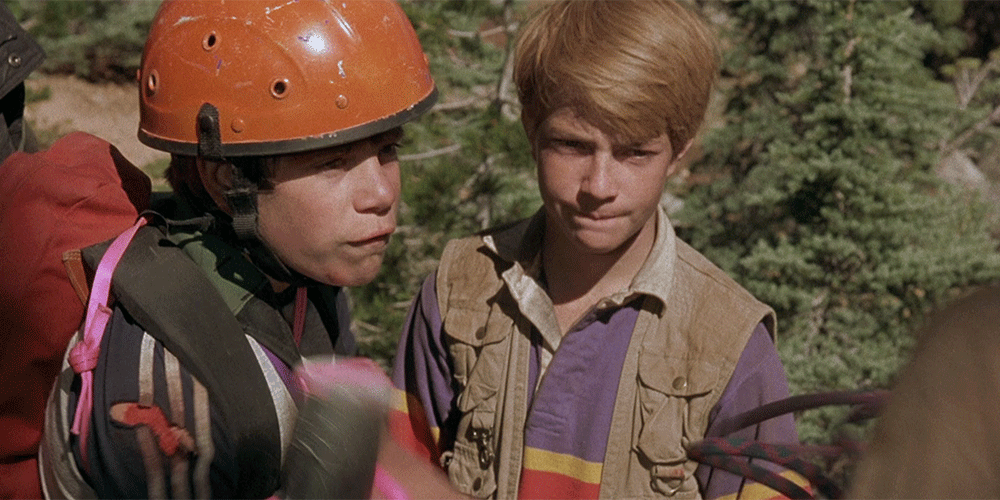I finally watched the first season of TRUE DETECTIVE this week and it lived up to the hype. I’m not writing any formal thoughts, though, since ten years have passed and it’s tough to gauge impressions so far removed from release. Did it seem familiar because it is or because everything has copied it in the interim? I honestly don’t think it matters considering any familiarity that was present didn’t negate how effectively drawn the story and characters were (Matthew McConaughey and Woody Harrelson were at the top of their respective games playing complex and flawed men), but its success does necessitate that it be viewed through a weighted filter.
I’m therefore very intrigued about how the second season plays out. I remember a lot of people feeling it was a steep drop from its predecessor at the time, but there’s been some new praise of late with people admitting they actually liked it more. I’m only an episode in right now, but it’s definitely different. Not necessarily tone-wise, but the structure and focus reveal a complete shift. Whether past or present, everything (but one scene in the finale) was from Rust or Cole’s perspective. Now it’s Velcoro, Semyon, Bezzerides, and Woodrugh going back and forth as a true ensemble.
That three of those four meet during the first episode’s conclusion bodes well for condensing things a bit, but I don’t mind a full reset of narrative convention to go along with fresh characters and settings. Let Nic Pizzolatto work solely within the constraints of a themed anthology. Demanding a cohesive style or framework only stifles the potential for creativity. Let it rise or fall on its own merits.
What I Watched:

MOLLI AND MAX IN THE FUTURE
(in limited release)
What’s the point of love in a world hurtling towards oblivion? Is it enough to just not want to be alone? These are the questions Molli (Zosia Mamet) and Max (Aristotle Athari) ask through their actions if not actual words as they traverse time and space on a quest for meaning in the meaninglessness of empty desires born from a capitalistic system placing value on conformity, celebrity, and the manipulative art of fearmongering. Michael Lukk Litwak’s MOLLI AND MAX IN THE FUTURE is thus very much about existing in our present.
Hillary v Trump. COVID. Religious indoctrination. Global warming. Genocide. Cancel culture. It’s all included beneath the thin veneer of science fiction by way of excellent lo-fi, in-camera practical effects. What begins as a meet-cute in space between a rebel (Molli trolling the galaxy for magic crystals to try and elevate herself above the restrictions of humanity) and a nerd (Max’s tech genius introvert devoid of the confidence to give his ideas life) soon unfolds as an episodic evolution of self wherein both become an indelible part of the other’s life.
They unwittingly inspire each other to pursue their dreams and, inevitably, to recognize they were so blinded by that pursuit to acknowledge the results weren’t quite what they hoped to find. Flirtation leads to friendship. Casual reunions lead to them becoming each other’s confidant. They try to right their ships, vent about the impending (but avoidable) doom to which every species has resigned itself by refusing to change, and distract themselves with relationships born from a yearning to have someone—anyone—by their side.
Should they accept they are soul mates and stop lying to themselves about the alternative? Probably. But doing so is easier said than done when your entire existence hinges on the existential dread and anxiety born from the insecurities and fallibilities of mankind. They’ve been wrong before. They’ve fallen prey to the allure of others only seeking to exploit them. They’ve seen joy and pleasure die. So, why risk all that again with the only person who was there to help get through it the first time? Why volunteer to be the person who isn’t good enough for the other and ruin what they have for something they can’t?
The answer, of course, is because they can. If they allow themselves to believe. That’s the real existential quandary on display. Not Turboschmuck’s (Michael Chernus) trash dimension. Not Walter’s (Arturo Castro) unyielding positivity keeping him enamored with a cult leader he consciously admits is a cult leader. Not the inherent contrasts of a quantum dimensional paradox or the nihilism born from an extinction you yourself caused. No, it’s the struggle to accept that the person you’ve become because of their help and the person they’ve become because of your help are both deserving of love. They’re both enough for love.
Litwak draws an entertaining path towards discovering this truth—even if it might come a little too late … if “too late” is even a real thing considering any arrival, no matter how brief, is success. Mamet and Athari are as charming as the production design and fully on-board with each chapter’s new metaphor for our current social and political chaos or philosophical punchline despite the episodic nature rendering the whole too stilted for its own good. Thankfully the laughs born from these scenarios are enough to keep us on-board for the next one, sustaining our hope for Molli and Max to finally get out of their own way.
- 7/10

THE MONK AND THE GUN
(in limited release; Bhutan's 2024 International Oscar submission)
Democracies are fought for and won. They are’t given. At least that’s how we think about them coming from the western world’s lust for power and control. To have a king not only be benevolent but also selfless enough to choose to abdicate his thrown in order to pull his country into modern times by way of elections is almost unthinkable. The people in rural Bhutan—as depicted in Pawo Choyning Dorji’s THE MONK AND THE GUN—were so happy with their lives under their monarch’s reign that the prospect of elections is now the cause of discontent.
Think about it. Life was good for the Bhutanese. Simple, but good. Yes, it could be better and will assuredly get better by opening the borders to technology like the internet (in 2006 no less), but the residents who don’t know what they’re missing aren’t going to be clamoring to voluntarily risk making things worse. They don’t therefore want to vote for strangers making promises. They want to keep the man they know and love and trust to keep their best interests at heart. How then do they reconcile that these elections are his doing towards those means?
The answer: teach them. That’s Tshering’s (Pema Zangmo Sherpa) job upon arrival in Ura. She’s to oversee mock elections meant to get this small community ready and educated for the real thing. But the lessons learned aren’t solely for the voters. She must learn some too by listening to the disconnect so the new government can hopefully work to bridge the divide. She must see the hardships this metamorphosis can create through Tshomo (Deki Lhamo) and her family’s sudden fracturing over political lines that never existed before. The tribalism seen today in America has sprouted overnight.
That’s only one theme on-screen, though. Dorji uses the backdrop of this event to both document its auspicious time and facilitate dramatic preconceptions and suspense. He does this through Tashi (Tandin Wangchuk), a monk serving Ura’s Lama—a man who sees this change as the potential evil force it could become. As such, he tasks Tashi with finding him two guns for a “ceremony” to be held on the next full moon. It’s a nearly impossible ask since guns aren’t prevalent in the country beyond law enforcement and the one person who might have one has already promised it to a foreigner.
So, amidst the suspense and mystery as far as whether the Lama plans to assassinate someone also lies the comedy of two parties vying for the same gun. And being that this is Bhutan and not America, Ron (Harry Einhorn) and his guide Benji (Tandin Sonam) are at a disadvantage despite offering an insane amount of money since no currency is more valuable to the people of Ura than pious reverence. The film becomes a sort of race against time as a result. Can Ron and Benji procure what Tashi needs to give up his claim before it’s too late?
The result is a smart, witty, and insightful piece of international cinema that works immensely well for a western audience. I’d argue a lot of the set-up is based upon how an American audience would infer upon the action rather than someone from Bhutan. How Dorji presents Tashi’s mission begs for us to jump to conclusions and how it all gets resolved is very much structured in a way that teaches us as outsiders a lesson rather than the Bhutanese characters themselves. It’s a great dual threat as the story surrounding Tshomo sets its sights internally while the one centering Ron points outside.
Add the gorgeous landscapes, humorous supporting cast (Tandin Phubz’s Phurba is an absolute delight as Tshering’s innocent and curious assistant), and a fantastic final reveal that expertly renders the threads to make it happen authentic rather than manipulative and it’s no wonder THE MONK AND THE GUN made the International Oscar shortlist on the heels of Dorji’s previous film’s (the equally wonderful LUNANA: A YAK IN THE CLASSROOM) nomination. There’s so much light and heart and hope that you can’t help but find yourself with a smile on your face throughout.
- 8/10
OUT OF DARKNESS
(in theaters)
Director Andrew Cumming and screenwriter Ruth Greenberg’s OUT OF DARKNESS delivers timely subject matter in its depiction of a group of Stone Age humans searching for a new home. There were four different types roaming the Earth at that moment, and, as we know, only one of them inevitably made it out to evolve into us: Homo sapiens. Why did they survive? How did they survive? What monsters may have lurked in the shadows for them to defeat so they could ultimately persevere? Or was salvation won by becoming the monsters?
It’s all about that age old fear of the “other” and how history is written by the victor. How we dehumanize another race or culture’s differences instead of taking the time to learn and understand the similarities. How labels like “monster” and “demon” arise so we may indoctrinate ourselves with the notion of an enemy that must be trying to kill us if we are trying to kill them. It’s the origin of genocide like the one currently unfolding in Palestine. A lack of empathy and compassion courtesy of an unfounded and irrational terror born from one’s own sins.
So, when Adem (Chuku Modu) breaks free from his clan to find paradise, he steels himself to the reality that he’ll need to fight his way through. Whatever might stand between him and prosperity must be unceremoniously cut down. Does that hubris lead to their discovery of barren land instead? Is God punishing him as Odal (Arno Lüning) muses? Or must they simply continue forward despite a lack of food and Adem’s new wife (Iola Evans’ Ave) needing nourishment to save the baby growing inside her?
Add Adem’s younger brother (Kit Young’s Geirr), his other child (Luna Mwezi’s Heron), and the stray they’ve picked up along the way (Safia Oakley-Green’s Beyah) and the potential for conflict only increases the longer things refuse to go right. They start blaming each other for their troubles. Their circumstances start forcing them to make bad decisions. And, with a howl in the night, they start being hunted as prey. One of them is taken and another killed. Where should the rest turn? To their faith, wits, or growing futility?
OUT OF DARKNESS intrigues by showing how genetic evolution never quite helped evolve our species psychologically. We still suffer from superiority complexes. We still give credence to superstition. We still ignore what our eyes see by choosing violence rather than support. We create villains out of our victims so as not to confront the reality that we are to blame. It’s all there on-screen as Geirr and Beyah are backed into a corner opposite the known (their traveling partners) and unknown (the beasts in the forest) and also in today’s news as more and more children are senselessly murdered.
It’s a tense affair with fantastic sound design that keeps the horror alive. Moments of gore are few but effective with the whole spoken in a made-up language (Tola) loosely based upon Basque. Yes, it’s another “we were the monsters all along” narrative, but it arrives in a unique package that embraces the nihilism of the concept instead of the hope that might remain despite it. Because we can still believe humans are “good at heart” despite doing “bad things” when watching this tale unfold in the present day. To see it set 45,000 years ago, however, demands we consider the opposite might be closer to the truth.
- 7/10
PICTURES OF GHOSTS [Retratos Fantasmas]
(in limited release; Brazil’s 2024 International Oscar submission)
There’s a whisper during Kleber Mendonça Filho’s PICTURES OF GHOSTS wherein a man is telling another that fiction films can also be documentaries. This documentary proves how as Filho delves back into his personal collection of home movies and fiction features to give context and detail to memories and nostalgia about the Brazilian city in which he lives, Recife. The evolution of place through the decades captured become ghosts of the past now covered by graffiti and plaster … if they still exist at all.
The first chapter deals mostly with the apartment where he grew up and currently owns. He shot all his early films there and thus its transitions, as well as that of the neighboring buildings and community, are preserved for all to see. What remains the same? What is unrecognizable? It’s all about the stories within the story that continue into chapter two as Filho turns his focus upon the many old movie theaters now left in disrepair. And, in chapter three, those cinemas which were repurposed as churches for an evangelical surge within the country.
Filho narrates it himself, explaining the train of thoughts and avenues towards new research that were sparked by digitizing this footage. It’s an essay film about his life and career as much as a document of a city caught up in multiple wars—even being visited by the Hindenburg back when Hitler saw Recife’s theaters as the perfect staging ground for Nazism abroad—while being built-up and torn down by changing economic interests. It’s an ode to art, ephemera, and metamorphosis. A walk through time within a place both haunted and inspired by that which came before. That which is archived in plain sight for those willing to look.
- 7/10
Cinematic F-Bombs:
This weekend sees INSIDIOUS (2011), INSIDIOUS: CHAPTER 3 (2015), INSIDIOUS: THE LAST KEY (2018), INSIDIOUS: THE RED DOOR (2023), and WHITE WATER SUMMER (1987) getting added to the archive (cinematicfbombs.com on Sunday, Twitter on Monday).
New Releases This Week:
(Review links where applicable)
Opening Buffalo-area theaters 2/9/24 -
EAGLE at Regal Elmwood & Galleria
LAL SALAAM at Regal Elmwood & Galleria
LISA FRANKENSTEIN at Dipson Amherst, Flix & Capitol; AMC Maple Ridge & Market Arcade; Regal Elmwood, Transit, Galleria & Quaker
OUT OF DARKNESS at Dipson Capitol; AMC Maple Ridge; Regal Elmwood, Transit, Galleria & Quaker
Thoughts are above.
PEPPA'S CINEMA PARTY at Regal Galleria & Quaker
SOMETIMES I THINK ABOUT DYING at Regal Galleria
“The dry humor of [Fran and Robert's] insecurities is entertaining enough to endure the pacing, but it's the supporting cast like Garrett and especially Marcia DeBonis' Carol that truly resonates.” – Full thoughts at HHYS.
THE TEACHERS' LOUNGE at Regal Transit & Quaker
“It's a tense and heartbreaking journey as the ripple effects of what occurs threatens to destroy futures. And, to make matters more complex, truth should become secondary to the most important aspect of the whole: the safety of children.” – Full thoughts at HHYS.
TERI BAATON MEIN AISA ULJHA JIYA at Regal Elmwood, Transit & Galleria
Streaming from 2/9/24 -
ASHES – Netflix on 2/9
BHAKSHAK – Netflix on 2/9
LOVER STALKER KILLER – Netflix on 2/9
SKELETONS IN THE CLOSET – Shudder on 2/9
SUNCOAST – Hulu on 2/9
UPGRADED – Prime on 2/9
THE ACCIDENTAL INFLUENCER – Max on 2/10
PENSATI SEXY – Prime on 2/12
FIVE BLIND DATES – Prime on 2/13
KILL ME IF YOU DARE – Netflix on 2/13
THE SPACE RACE – Hulu & Disney+ on 2/13
FAZENDO MEU FILME – Prime on 2/14
THE HEARTBREAK AGENCY – Netflix on 2/14
PLAYERS – Netflix on 2/14
A SOWETO LOVE STORY – Netflix on 2/14
THE TRUTH ABOUT JIM – Max on 2/15
Now on VOD/Digital HD -
AMERICAN FICTION (2/6)
“It's the dejection that allows Cord Jefferson's AMERICAN FICTION to work. This satire isn't educating us. It's not calling something out and then presenting a solution. No, it's simply giving life to the fatigue of our unfortunate reality.” – Full thoughts at HHYS.
THE BOOK OF CLARENCE (2/6)
CULT KILLER (2/6)
DEEP SEA (2/6)
I.S.S. (2/6)
“While the beats are obvious and the tension often fabricated to the point of becoming inert, DeBose, Asbæk, and the others lend the action an honesty that elevates the material.” – Full thoughts at HHYS.
MAMA WATI (2/6)
COBWEB [Geomijip] (2/9)
FLOAT (2/9)
LOLA (2/9)
MARMALADE (2/9)
WILLIE AND ME (2/9)







